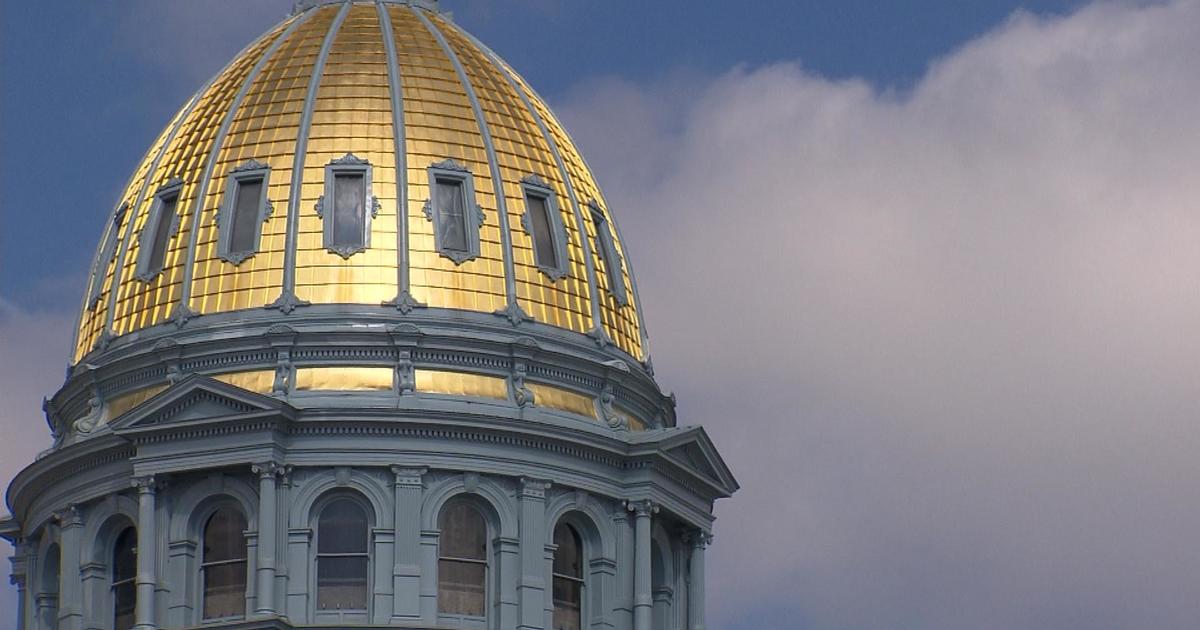Effort To Tighten Colorado Constitution In Peril
DENVER (AP) - Colorado lawmakers from both parties seemed unusually united earlier this year on a plan to rein in the state's free-wheeling constitutional amendment process. But with just a few hours left to go in this legislative term, the measure to make it harder to amend the constitution is very much in doubt Tuesday.
The Democratic Senate and Republican House have both passed a resolution that requires a 60 percent vote of the public, not a simple majority, to make any changes. But the chambers approved slightly different versions, and efforts to rectify the differences have stalled for more than two months.
Sponsors from both parties feared the worst for this year's effort to tighten the state constitution.
"I think it's dead," said Republican Rep. Carole Murray, of Castle Rock, who sponsored the resolution in the House.
She said that lawmakers seemed to agree the constitution should be harder to change, but interest groups who like to push amendments have lobbied lawmakers to sink the change.
"It's all about self-interest -- and they've decided it's in their self-interest for (Colorado's ballot initiative process) to stay the way it is," Murray said.
Colorado has the nation's lowest signature threshold to petition an amendment onto ballots, accounting for the state's small population. The current requirement is about 86,000 signatures.
As a result, Colorado has a long constitution riddled with amendments. Some of them conflict even with each other.
The proposal currently tripping up lawmakers would raise the threshold to 60 percent starting in 2013. It would also require that petitions include voters from various parts of the state to sign a petition, a change to prevent one region from pushing a measure another region opposes.
Previously adopted constitutional amendments could still be repealed with a simple majority.
The change wouldn't take effect until approved by the voters in 2012. But a similar measure was rejected in 2008, and some lawmakers say it's no loss if the measure fails to even get that far.
"It's saying that we, the Legislature, don't trust the people," said Republican Sen. Kevin Lundberg, one of a handful of lawmakers who voted against the change when the measure first came up early this year.
"I believe that in Colorado we have the initiative process for a reason. It's a valid safety valve by the people," Lundberg said.
Supporters say the initiative process is being abused by out-of-state interest groups who gravitate toward states with low thresholds to force questions to voters. Most voters, they argue, don't like ballots stuffed with confusing initiative questions with murky backers.
"If it gets to the ballot, people will pass it," insisted Republican Sen. Nancy Spence.
Democratic Senate President Brandon Shaffer appeared to hold the reins on the measure, which has awaited Senate action for weeks.
Shaffer wasn't prepared to declare the resolution dead -- but he conceded it would be a stretch to push the matter through in the Legislature's closing hours. He said that quick adoption earlier this year was followed by heavy lobbying from interest groups that use the ballot initiative process.
"The longer it's stayed out there, the more the groups had time to circle the wagons against it," Shaffer said.
Bills and resolutions must clear both chambers in identical form by midnight Wednesday to take effect.
- By Kristen Wyatt, AP Writer
Senate Concurrent Resolution 1
(Copyright 2011 by The Associated Press. All Rights Reserved.)



